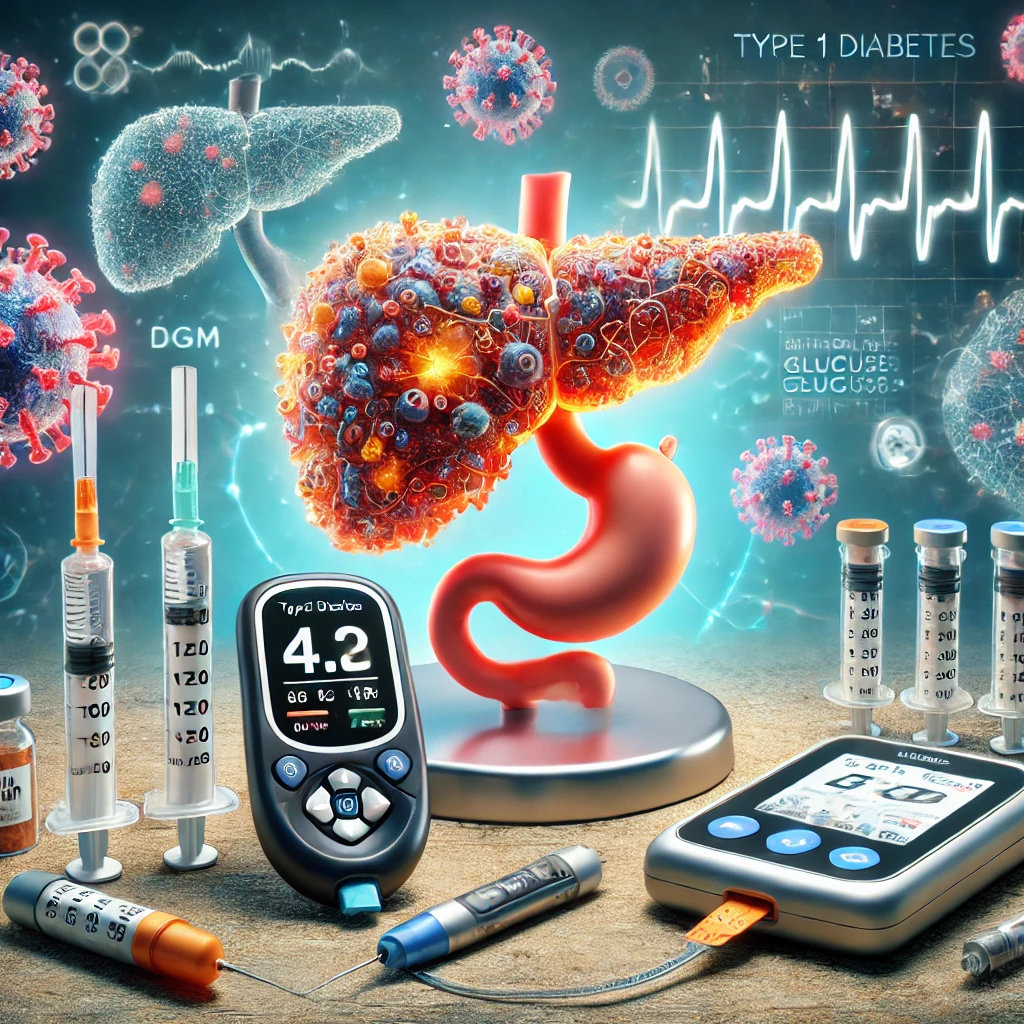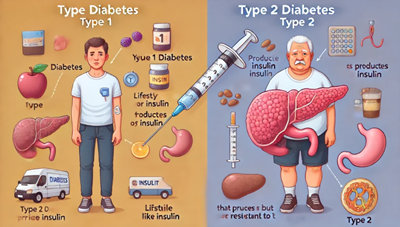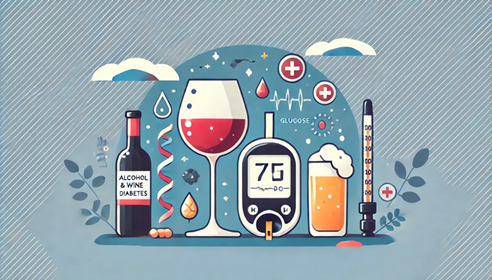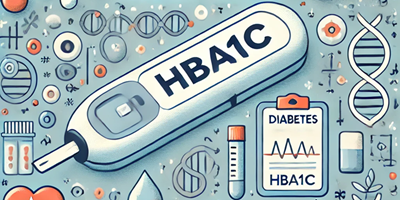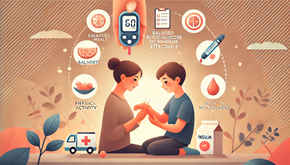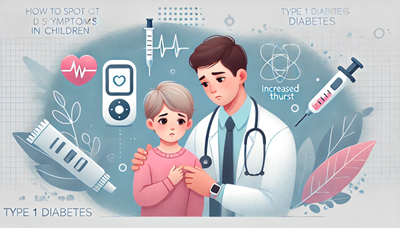Type 1 Diabetes: What You Need to Know for Better Health
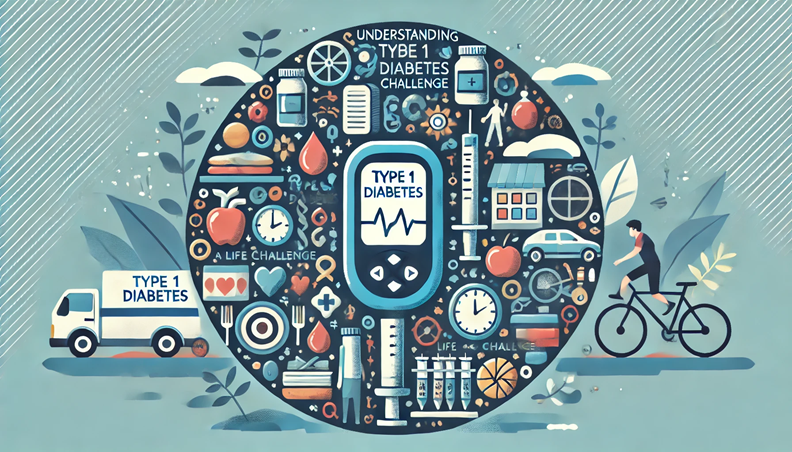
What is type 1 diabetes ?
Type 1 Diabetes is an autoimmune disease where the body’s immune system attacks the insulin-producing beta cells in the pancreas. Unlike Type 2 diabetes, which can often be managed through lifestyle changes, Type 1 diabetes requires lifelong insulin therapy. This condition typically develops during childhood or adolescence, though it can occur at any age.
What Causes Type 1 Diabetes?
The exact cause of Type 1 diabetes is unknown, but it’s believed to be a combination of genetic predisposition and environmental triggers, such as viruses, that prompt the autoimmune attack on the pancreas. Unlike Type 2 diabetes, factors like diet and lifestyle don’t cause Type 1 diabetes.
Symptoms to Watch For
Early symptoms of Type 1 diabetes can appear suddenly and often include:
- Frequent urination
- Extreme thirst
- Unexplained weight loss
- Fatigue and irritability
- Blurred vision
If not treated quickly, high blood sugar levels can lead to a dangerous condition known as diabetic ketoacidosis (DKA), which can be life-threatening.
Treatment and Management
Managing Type 1 diabetes requires regular blood sugar monitoring and insulin injections. Patients often use multiple daily injections or an insulin pump to deliver insulin continuously. A healthy diet and regular physical activity are also crucial for managing the disease. Technologies like continuous glucose monitors (CGMs) provide real-time feedback on blood sugar levels, improving control and reducing the risk of complications.
Life with Type 1 Diabetes
Though it requires diligent management, advances in diabetes care have significantly improved the quality of life for people with Type 1 diabetes. New technologies, better insulins, and promising research, such as immunotherapies and artificial pancreas systems, offer hope for a future where managing Type 1 diabetes becomes easier and more efficient.
In Conclusion
Type 1 diabetes is a challenging condition, but with the right tools, education, and support, individuals living with it can lead healthy, fulfilling lives. Ongoing research into the disease may one day pave the way for more advanced treatments or even a cure.
This blog post is a valuable resource for those newly diagnosed or looking to support a loved one with Type 1 diabetes.
